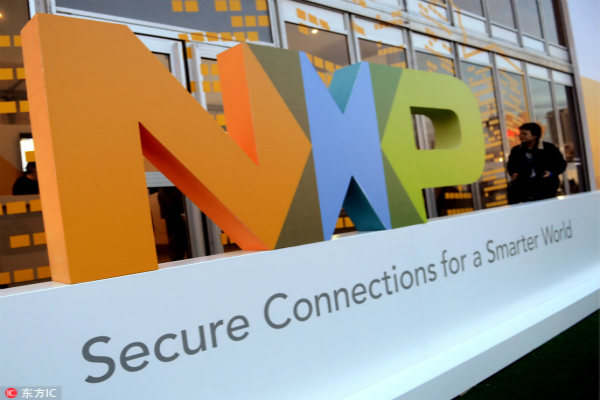 |
|
NXP Semiconductors, the world's top chip maker for the auto industry. [Photo/IC] |
NXP Semiconductors, the world's top chip maker for the auto industry, is ramping up resources to tap into the internet of things and smart vehicle opportunities in China, where local consumers are highly responsive to new technologies.
The company announced on Tuesday that it has inked a partnership with Foxconn Industrial Internet Co Ltd, a subsidiary of the world's largest contract manufacturer Foxconn Technology Group, to pursue growth in the industrial internet of things sector.
The move is part of broader deals NXP has inked with Chinese companies including one with Iris Recognition, a leading computer vision player at a major tech conference in Shenzhen, Guangdong province, recently.
Steve Owen, executive vice president of sales and marketing at NXP Semiconductors, said as the trends of connectivity, electrification and autonomy continue in the automobile sector, the semiconductor value in each car will be more than tripled in the future from $380 in 2017.
More than 90 percent of innovation in cars will be from electronics, which will spur demand for chips. The opportunities in China are pretty strong given that local carmakers, consumers and governments are keen to embrace autonomous and connectivity technologies, Owen said.
The Dutch company has already partnered with Chinese internet behemoth Baidu Inc in offering safety technologies for smart-driving experiences. It has also teamed up with Alibaba Group Holding Ltd to integrate its in-car entertainment platforms and technologies to the latter's automobile operating system. The two sides aim to have more than one million cars equipped with such a system by 2020.
The company has also set up an application center in Chongqing to ensure that its increasingly complex products, especially microprocessors, can fully support local partners.
Earlier this year, the United States semiconductor giant Qualcomm Inc gave up its proposal to acquire NXP, a deal that had been going on for almost two years.
Lu Wenliang, an expert at the research institute of the China Center for Information Industry Development, said the deal failure resulted in some loss of clients for NXP, but on the whole had limited impact on its products.
masi@chinadaily.com.cn